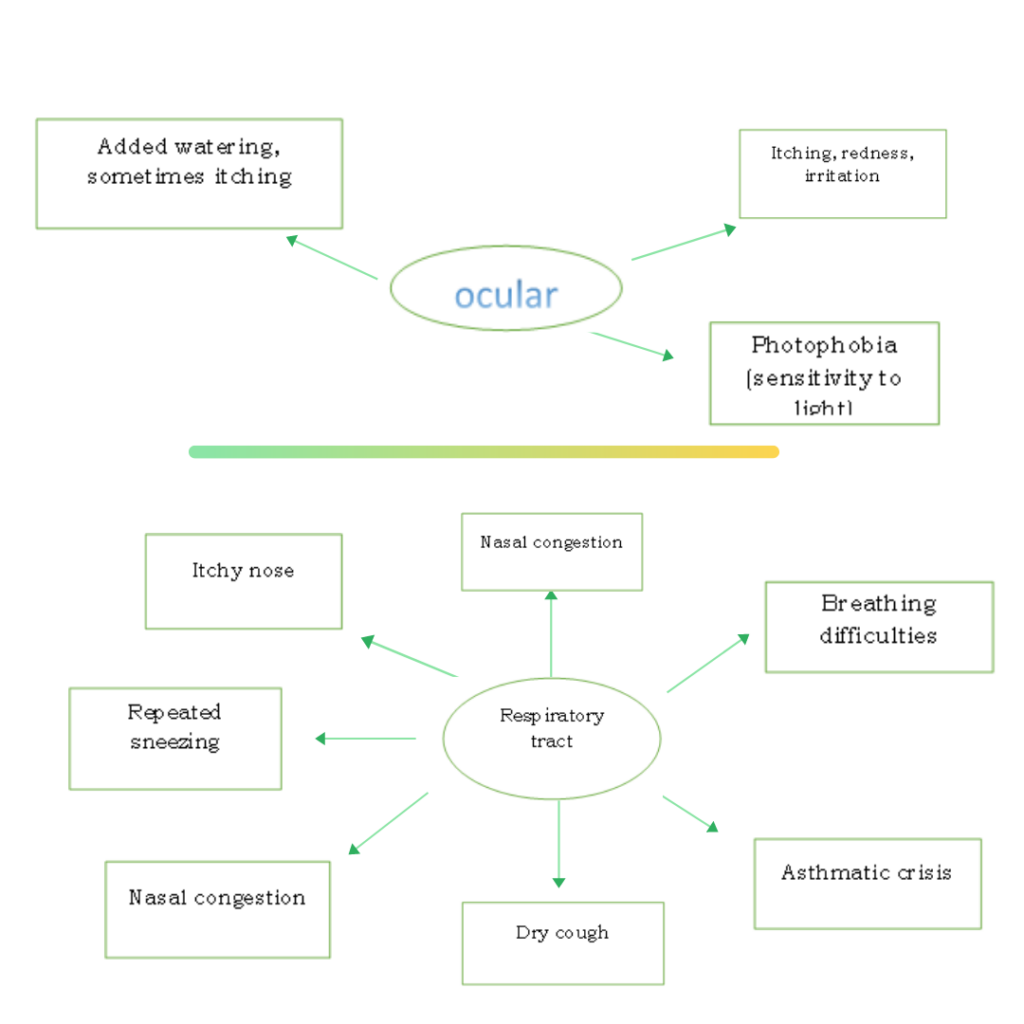Seasonal allergy…. What should we know?
Are you sneezing? Do you have a cold? Are your eyes watering? Is your skin itching? Do you have respiratory problems and you do not understand why??????? Most likely you are exposed to an allergen, which has caused an allergic reaction (allergy).
The following diagram explains how an allergic reaction occurs.
What an allergen is?
An allergen is a substance which, enters the body and triggers an allergic reaction. The reaction usually takes place in the area that comes in contact with the allergen. Ex:
- Nasal / bronchial in case of inhalation of pollen, dust, pet hair etc;
- Gastrointestinal, in case of consumption of products, that cause allergic reactions;
- Skin, when the allergen comes in contact with the surface of the skin.
In some cases, a systemic allergic reaction may occur.
What happens in a normal body?
An individual’s immune system acts against bacteria / viruses that aim to cause disease, but does not stimulate any immune response to pollens, powders, foods or other substances with which we are in daily contact. In allergic people such a thing does not happen. The immune system produces antibodies even when it comes in contact with everyday substances.
Allergies are numerous. We can mention:
-food allergies;
-drug allergies;
-contact allergies;
-the allergy from insect bites.
The most common and probably the most common are seasonal allergies.
Allergies can occur at any age and cannot be transmitted from one person to another. In most cases allergies are not life threatening, but it is noticed that over the years the number of people affected by allergies has increased.
Seasonal allergies are noticed whenever we have a change of seasons, in people who show hypersensitivity to specific plants, trees, etc. Humidity is also a factor, which can cause allergies.
The main cause of allergies are pollens. Pollens spread almost throughout the environment and are inhaled through the airways. After inhaling, the allergic reaction appears.
Identifying and recognizing pollens can help treat and prevent allergic reactions. Specific calendars have been created in different parts of the world, showing the change of pollen in different areas at different times of the year.
During warm and windy days, the movement of pollen is favored, while on wet days this movement is difficult. The allergic reaction takes place only if we have a large amount of pollens in the air.
The symptoms are:
- nasal;
- ocular;
- bronchial.
In some case, allergies can be associated with headaches, urticaria, dermatitis and a general malaise.
Diagnosis and treatment of season allergy
Your doctor follows some easy steps.
- 1. Anamnesis – is performed by a specialist doctor. A detailed study is done regarding the patient’s condition and family history. The doctor asks the patient if he has had a family history of allergies, about the symptoms he has shown, about the time when the allergy happened and his lifestyle.
- 2. Skin testing – is done through several tests which aim to specify whether the problem is related to allergy from a specific allergen or not.
- Prick test – a drop of an allergen extract is put in contact with the skin. The doctor pierces the area with an needle. If the person is allergic a red spot appears on the skin. The specialist sees the intensity of the stain formed and makes his assessment.
- Intradermal test – is a more advanced variant of the Prick test. The allergen is injected under the skin through a syringe. The doctor should monitor the pacient over a period of 24-48 hours.
- Prist test – diagnoses total IgE through a blood test.
- Rast test – measures specific IgE against a particular substance.
Proper treatment includes:
- Patient education;
- Environmental prevention;
- Pharmacological therapy.
There is no specific cure for allergies. There are simply medications that treat and alleviate the symptoms.
Some advices
If you are a person, who suffers from seasonal allergy:
- -Keep the windows of the house and car closed during the period when there are a lot of pollens in the air;
- -Take a shower, change your clothes and wash your hands whenever you are exposed to outdoor environments where are allergens;
- -Keep aKn95 mask, when going outside to avoid inhalation of pollen;
- -If you have pets, regularly vacuum carpets or blankets from their hair. If they stay outside for a long time there is a high chance that pollen will stick to their hair.
- -Consume a lot of foods that contain vitamin C;
- -Use a humidifier for the air, because it removes allergens found in the air;
- -Use essential oils, as they improve respiration;
- -The use of probiotics during the first year of life of babies, their use during pregnancy and breastfeeding reduces the possibility of allergic reactions.
You might also be interested in the following articles:



